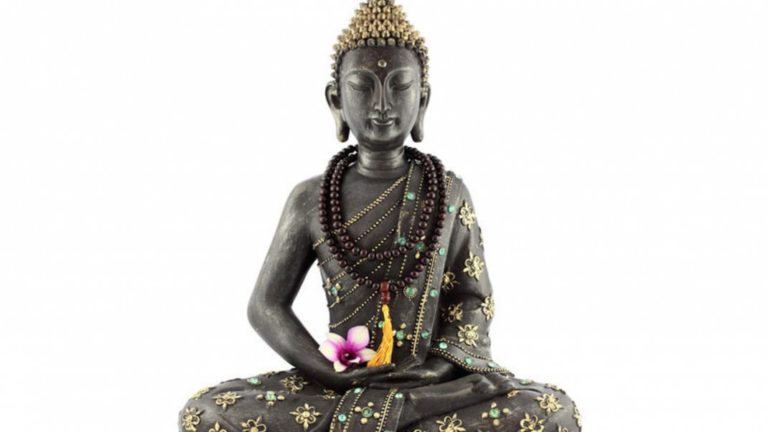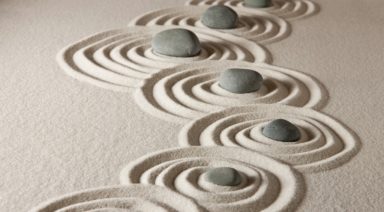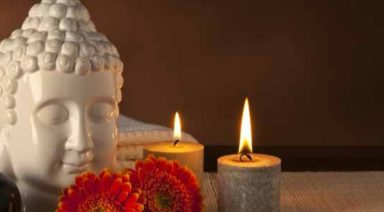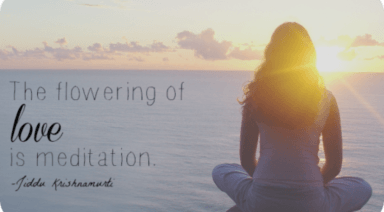Meditate and Move On: A Lesson from My Mala

In 1996 while traveling in India I received a gift of a simple rosewood Mala from a man who I believe was a holy messenger. One of those sent by the divine when we are most lucky or most needing a nudge or reminder of something greater than our smaller, less cosmic concerns. I met Surendra in Haridwar near Rishikesh as I was walking through the marketplace. He was a professor of music and full of life wisdom. We had a wonderful time over those legendary cups of Indian chai discussing Vedic astrology, sacred music and other intriguing topics. After a rich afternoon of conversation I mentioned to Surendra that I was leaving for Rishikesh the next day by train and we said our goodbyes. I was waiting at the station the following day and Surendra magically appeared on the platform just before my train was due to arrive. He walked slowly up to me and handed me a very simple dark rosewood mala and said to me in a deep and sincere voice “Meditate.” Then he walked away.
So extraordinary life is. As I was writing this story about the meaning of malas in my journal I went to the kitchen to make a cup of tea and my treasured rosewood mala caught on the kitchen cabinet and broke.
They say when a mala breaks you are not supposed to fix it. You are supposed to gather its broken pieces and place the beads on your altar. It is time to move on and let them go because you have learned something, or made a breakthrough. New lessons are ready to come your way in this university of life. It’s time to connect with and choose a new mala.
There is a part of me that wants to fix this mala and ignore the wisdom of letting go. It is the third one this year that has broken on me. The first one was a mala that had an African Jade stone at the end. I was more attached to the beauty of this one than the sentiment or energy of it and so I let it go quickly. The second was a sandstone mala I had bought for my beloved husband as a gift, which I chose to wear one day as adornment. It was unthinking to wear someone else’s mala beads. This third one made me really quite sad. It was a special gift steeped in meaning and given to me with a specific message in a city regarded as one of the seven holiest places to Hindus.
In Hindu mythology Haridwar is one of four sites where drops of Amrit – the elixir of immortality – accidentally spilled over while being carried in a pitcher by the celestial bird Garuda. The Kumbha Mela, a holy festival held every 12 years in Haridwar, attracts millions of pilgrims, devotees and tourists. These seekers congregate here to perform ritualistic bathing on the banks of the river Ganges to wash away sins and attain Liberation.
I have been wearing those prayer beads on and off over the last 16 years stopping now and then to think about the profound gift of them and who they came from. Now the words “meditate” float in the ether around me. No beads imbued with a reminder of this practice that leads to immortality. The message seems more profound now especially as I have of late recommitted to deepen my practice. To meditate I do not need anything except for my desire to feel peace and communicate with the divine, with the source, with my own divinity. Surendra, thank you. Perhaps those difficult planets you mentioned that have been obstructing the course of discipline in my practice have also shifted and the timing is perfect for the creation of something new to come into being. I am sure somehow this was all destined and 16 years was the exact life span intended for this most treasured mala.
And I pass along to you a virtual mala with a message in honor of Surendra:
Meditate. Move on. Meditate.
Meditation and Mindfulness; Methods for Lasting Peace

Mindfulness is an essential and useful pathway that leads to peacefulness. It isn’t rocket science, it doesn’t require a trendy workshop, and it doesn’t require that you live in an ashram.
“Each place is the right place. The place where I now am can be a sacred space.”
– Ravi Ravindra
What is Mindfulness?
The most basic definition of mindfulness might be the act of paying attention to the things that you are experiencing, and then choosing peacefulness in relation to every action, person, thought, feeling, and response.
Mindfulness in its purest form has the following characteristics:
- Being fully present to what’s happening in this moment
- Leaving the past in the past
- Letting fantasies of the future dissolve
- Refraining from self-judgment and judging others
- Keeping emotions in-check
- Responding instead of reacting
- Strengthening our connection to our core selves
















